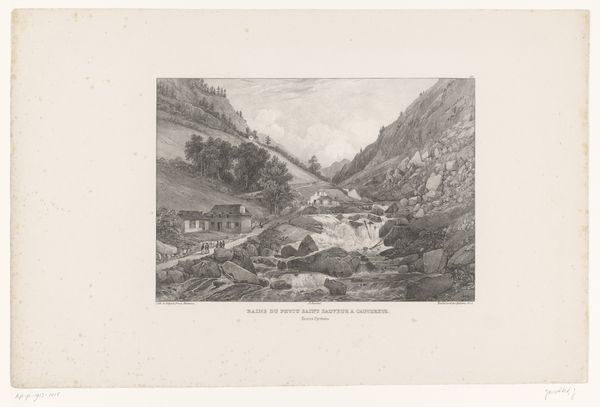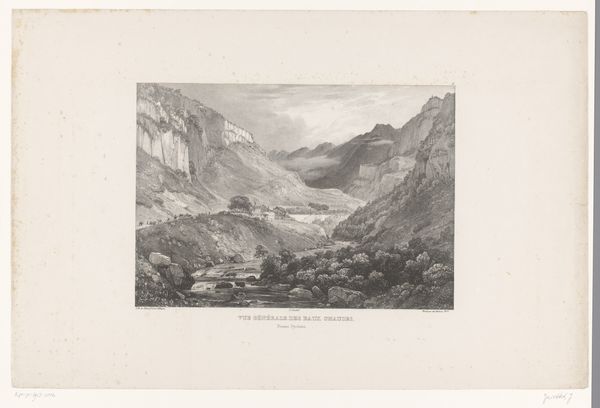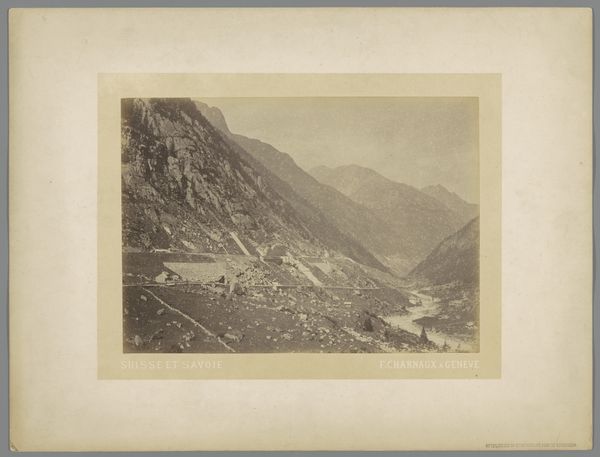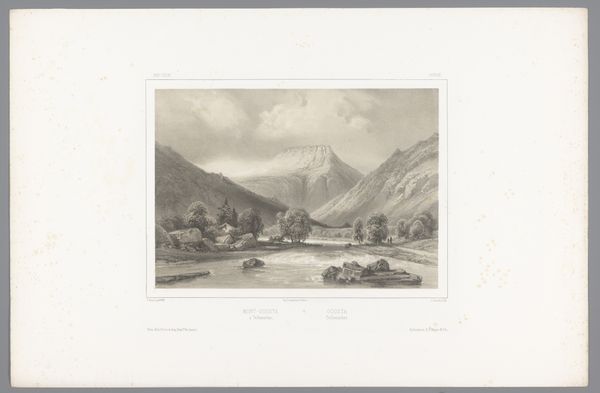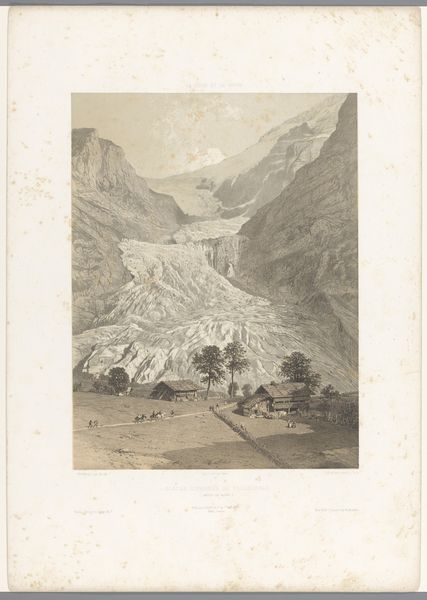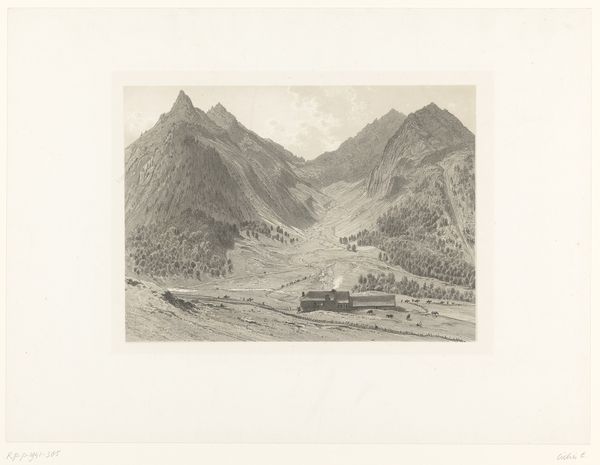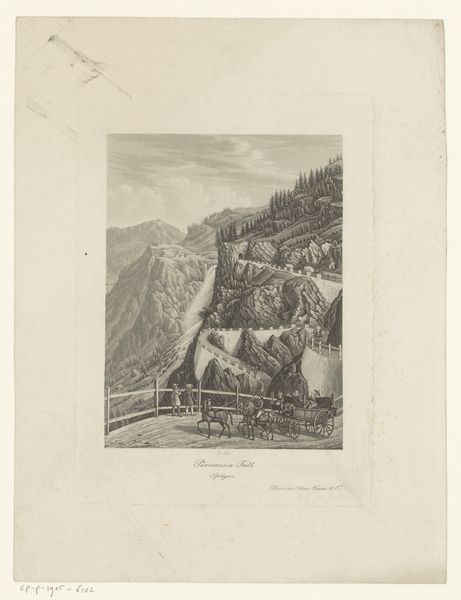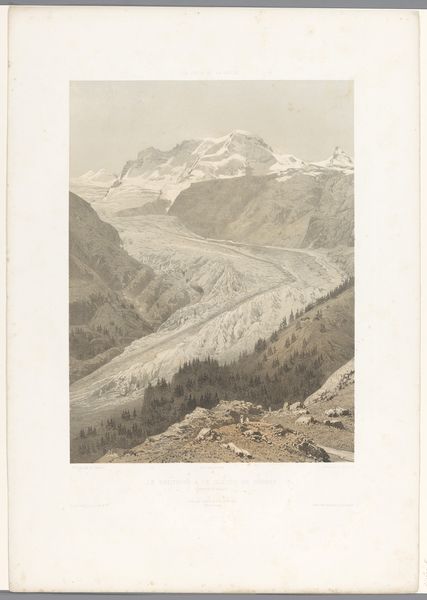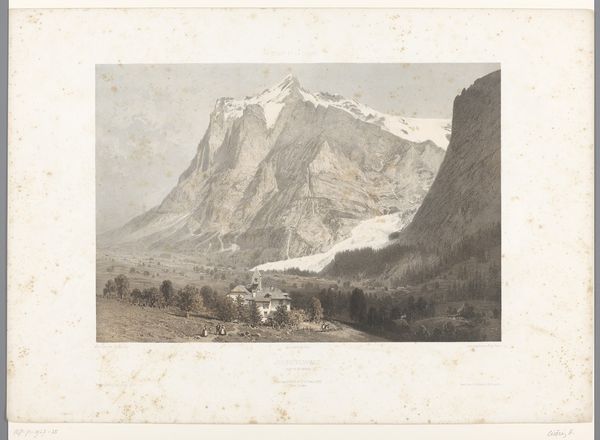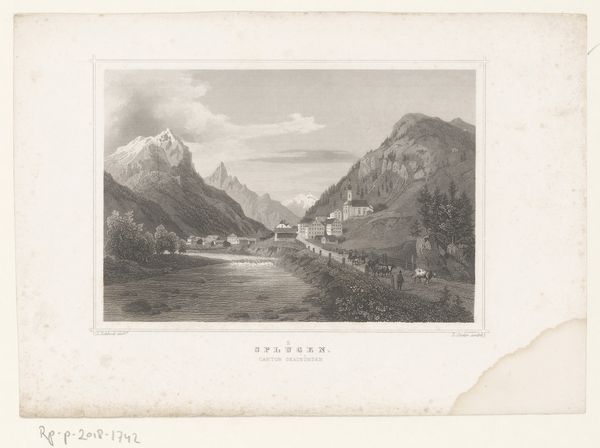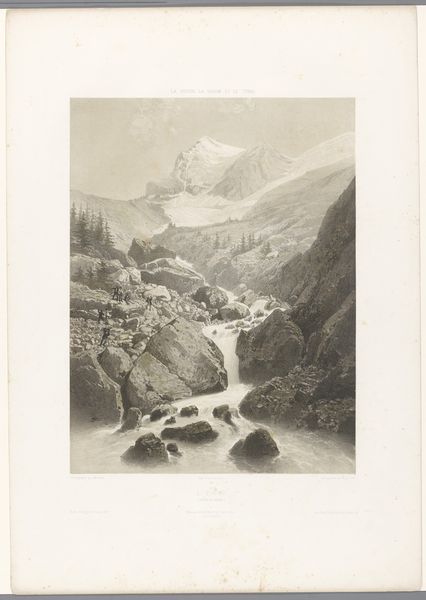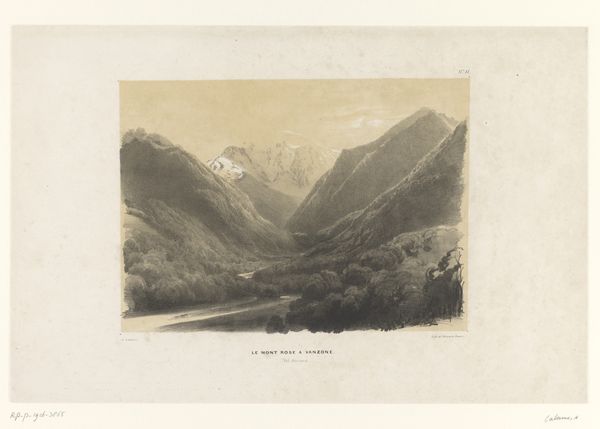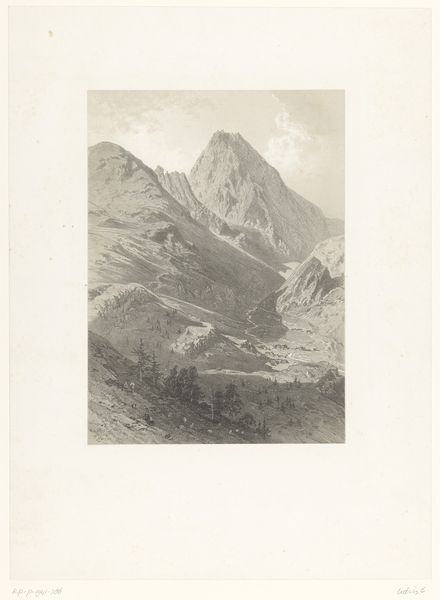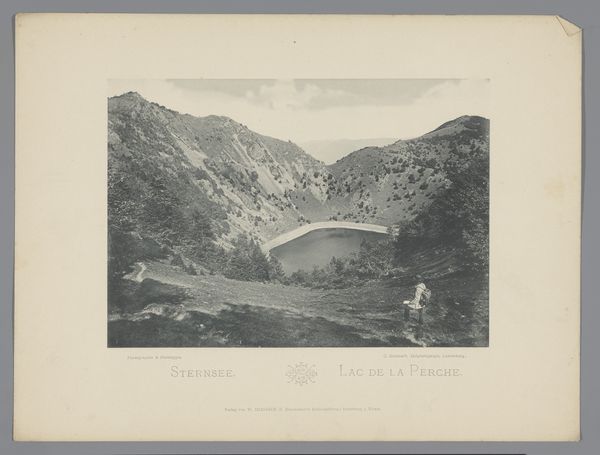
Dimensions: height 294 mm, width 404 mm
Copyright: Rijks Museum: Open Domain
Eugène Cicéri created this print of the Lys Valley, using an etching technique, sometime in the mid-19th century. Images like these capture the growing interest in nature as something sublime, an interest partly fuelled by the increasing urbanization of Europe. Look at how the image presents the valley: the tiny buildings nestled at the base of the towering mountains. The image creates meaning through such visual contrasts. The waterfalls and glaciers would have held a particular fascination for a society increasingly aware of the power of natural forces. France, at this time, was undergoing rapid social and economic change, and its art institutions were central in shaping cultural values. Understanding this artwork requires us to consider the social conditions that shaped its production and reception. What did nature mean to a society grappling with industrialization? We can research travel guides, scientific studies, and literature from the period to understand better. Only then can we fully appreciate the role of art in reflecting and shaping cultural attitudes.
Comments
No comments
Be the first to comment and join the conversation on the ultimate creative platform.
